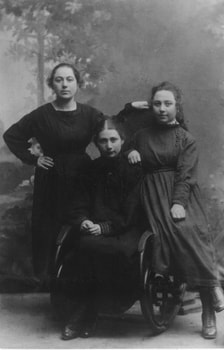 I was invited to give a presentation at a Christian-Jewish church service with a theme of persecution and immigration, as part of this year’s North Cornwall Book Festival. The recent horror of refugees trying to flee Afghanistan in the wake of the Taliban victory, and the plight of migrants making perilous sea crossings in an attempt to reach Europe or the UK, have once again brought these issues to the fore. My own family lived through the pogroms, a series of anti-Semitic riots that took place in the Russian Empire, which in many ways served as a precursor to the Holocaust. Today, we would probably call the pogroms a form of ‘state-sponsored terrorism’ against Jews – supported and incited by the government, if not actually perpetrated by it. They began in 1881, when Jews took the blame for the assassination of Tsar Alexander II, and continued in waves for the next 40 years, peaking in 1905 before coming to a head during the Russian Civil War – a chaotic and intensely violent period that lasted for about four years following the Bolshevik Revolution of 1917. During the civil war, the area where my family lived – near Kiev, in present day Ukraine – became a battleground with numerous armies criss-crossing the land – Communists, Nationalists, Anarchists, anti-Bolsheviks, peasant militias – all of them anti-Semitic to a greater or lesser degree. The White Army in particular, which was loyal to the Tsar – and backed by the West – introduced methods of mass murder of Jews that were later taken and pushed to their limit by the Nazis twenty or so years later. Many White Army soldiers later went on to join the Ukrainian militias that collaborated with the Nazis to destroy all Jewish life in Ukraine in the early 1940s. As well as the violence during the civil war, there was hunger. Food had become scarce during World War l, inflation soared making what little there was unaffordable, and the Bolsheviks requisitioned grain from the countryside (including from my great-great grandfather, who was a grain trader), to feed the workers in the towns. Not only did they take the grain, but also the seed, leaving the peasants with nothing to grow crops with the following year. The population was left to starve. My grandmother Pearl was around 17 years old at the start of the civil war, and an orphan. She lived with her grandparents, siblings and cousins and took it upon herself to become the family breadwinner, undertaking terrifying and dangerous journeys by train to markets across the region to buy, sell and barter what she could to keep her family alive. Eventually she even became a black-market gold dealer – taking any gold items belonging members of her local community on a murderous journey half way across Ukraine to exchange them for hard currency, which she brought back to the villagers so they could use it to buy food. Had she been caught, either with the gold or hard currency, she would have been shot. After more than three years of this perilous life that she hated with a passion, and following a particularly arduous trading trip when she was caught in a snowstorm and almost froze to death, she could take it no more. She decided she must try to get herself and her family out of the country. Six months later, in 1924, Pearl managed to emigrate to Winnipeg, Canada to join some other members of her extended family who had already made it out of Russia. She travelled alone, and with nothing. Once in Canada she did what so many immigrants do. She found a job and worked hard, scrimping, saving, and borrowing to raise enough money to bring the rest of her family over to join her the following year. Today my family is spread across Canada, from Vancouver to Toronto, and in America from California to New York, as well as in Germany, Israel and the UK, where they became, among other things, teachers and lawyers, journalists and doctors, Rabbis and social workers, all adding in their own unique ways to the prosperity and cultural life, as well as the wonderful diversity, of the places they now call home. Photo: Pearl (left) with her sisters Sarah (centre) and Rachel, circa 1920
0 Comments
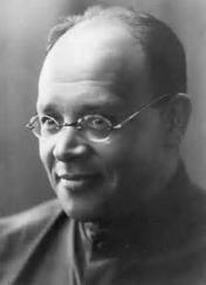 Last Saturday, 13 July, marked the 125th anniversary of the birth of the Odessan writer journalist and playwright Isaac Babel. The event may not have been cause for much celebration, but it was fittingly marked with an article in the Moscow Times and gives me an excuse to write again about this doyen of twentieth century Russian literature. Born in 1894 to a middle-class Jewish family in Odessa, present-day Ukraine, Babel was best known for his collection of Red Cavalry stories, drawn from his personal experience as a journalist with the Red Army in 1920, and his Odessa stories, featuring characters from his hometown, including the legendary gangster Benya Krik. It has been said that, “To read Babel is to experience the wild and often terrifying swings of Russian history”. Babel has also been called "the greatest prose writer of Russian Jewry" and is considered one of the luminaries of 20th-century Soviet literature. Babel’s career was supported by his friendship with the Russian Revolution’s leading literary light, Maxim Gorky. Babel moved from Odessa before the revolution to St Petersburg, where he lived illegally (as a Jew, he was restricted to the Pale of Settlement in the southwest of the country) to be close to Gorky, who began mentoring him in 1916 and published his early works in a literary magazine. The two would remain friends until Gorky’s death in 1936. Indeed, it was Gorky who urged Babel to become a journalist to gain more life experience in order to inform his writing, prompting him to enlist in the Soviet army as a war correspondent and propagandist. He was assigned to an army division in the Polish-Soviet War of 1920, where he witnessed scenes of horrific brutality, some of which would become the basis for his Red Cavalry stories. Observers have said the book’s depictions of violence contrasted jarringly with Babel’s gentle nature. His honest, explicit description of war diverged heavily from revolutionary propaganda and was the first exposure many Russian readers had to the realities of the war. After the war, Babel returned to Odessa, where he began work on a series of short stories that were later published as the Odessa Tales. The stories, narrated by an ironic version of Babel himself, describe the life of Jewish gangsters in an Odessa ghetto around the time of the October Revolution. The character of Benya Krik, has been referred to as one of the great anti-heroes of Russian literature. Babel wrote that Odessa was ‘the most charming city of the Russian Empire…a town in which you can live free and easy. Half the population is made up of Jews, and Jews are a people who have learned a few simple truths along the way…you might not be able to budge these Jews from their opinions but there’s a whole lot you can learn from them. To a large extent it is because of them that Odessa has this light and easy atmosphere.’ In the 1930s, Babel increasingly withdrew from public life as Stalin applied pressure on the Soviet intelligentsia. By the end of the decade he had fallen victim to Stalin’s purges. He was arrested in 1939 by the NKVD, a precursor to the KGB, on fabricated espionage and terrorism charges and taken to the infamous Lubyanka prison, the headquarters of the secret police in Moscow. His papers were confiscated and destroyed, among them half-completed stories, plays, filmscripts and translations. Babel was shot by firing squad in January 1940 following a brief, clandestine trial. His name and work were erased until 1954, when he was rehabilitated during Soviet premier Nikita Khrushchev’s ‘thaw’. 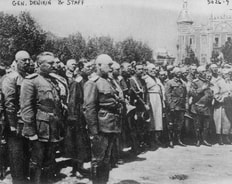 I have both read and written a lot about the pogroms in Ukraine, which were at their peak a hundred years ago. Like Holocaust literature, the more one reads, the more one ceases to be shocked and horrified. I thought that reading about the pogroms would no longer have the searing impact on me that it once did, but I have found that a new book published this month still has the ability to sicken. The work, by Nokhem Shtif, was first published in Yiddish 1923, but now appears in English for the first time translated and annotated by Maurice Wolfthal as The Pogroms in Ukraine, 1918-19: Prelude to the Holocaust. Shtif was editor-in-chief of the editorial committee for the collection and publication of documents on the Ukrainian pogroms, which was founded in Kiev in May 1919. Shtif focuses specifically on atrocities committed by the Volunteer Army, also known as the White Army, under General Anton Denikin, as opposed to the myriad other armies and militarised groups – banda as my grandmother called them – that were rampaging violently across Ukraine at the time. The number of Jews murdered in Ukraine in the aftermath of the Russian Revolution is estimated at anywhere between 50,000 and 200,000, with up to 1.6 million injured, attacked, raped, robbed, or made homeless in the largest outbreak of anti-Jewish violence before the Holocaust. The number of individual pogroms is estimated at more than 1,200. “The Jews were attacked by a number of different groups of perpetrators including Anton Denikin’s Russian Volunteer Army, Simon Petliura’s Army of the Ukrainian Republic, various peasant units, hoodlums, anarchists, and the Bolshevik Red Army. “These attacks stemmed from a number of grievances: accusations of supporting the enemy side, the chaos following the collapse of the old order, the aftermath of World War I and of the Russian Revolution, and a widespread anti-Semitism, after the dissolution of the Russian and Habsburg Empire.” So writes the Berlin-based historian Grzegorz Rossolinski-Liebe in his preface to the book. The relative lack of literature and research on these events provides some explanation for why the Ukrainian pogroms have garnered so much less attention than the Holocaust that followed some 20 years later. Of the research that does exist, much focuses on the nationalist leader Petliura, the subject of my December 2018 blog post. When it comes to Denikin, “the crimes committed by his army have not been forgotten but they were neither investigated as thoroughly as the massacres by the Petliura army nor did they arouse any major controversies, because none tried to systematically or deliberately deny them as the Ukrainian nationalists did in the case of Petliura’s soldiers”, Rossolinski-Liebe argues. But Denikin’s army was unique among the banda in that it murdered Jews in an orderly and methodical way, clearing out the Jewish population from the towns and villages it raided using many of the practices that would be adopted by the Nazis two decades later. The author’s aim is to demonstrate that the pogroms were an integral part of the Volunteer Army’s military campaign, much as the murder of the Jews was for the Nazi regime. The Volunteer Army was a force made up of former Tsarist officers that aimed to drive out the Bolshevik regime and restore every aspect of Russia to its pre-Revolutionary days. Their aims, as Shtif says were, “The land must be returned to the aristocracy. The labor movement must be crushed […] Jews will continue to be second-class citizens, oppressed and subservient.” Pogroms were a way of preventing Jews from gaining the equal human rights that the revolution had granted them. Shtif is convincing in his explanation of the causes of the pogroms: “For the reactionaries pogroms are a way to prevent Jews from obtaining equal rights, which the hated Revolution granted them. Pogroms are the first step towards reducing them to a state of slavery. That principle […] is at the root of the pogroms. In the eyes of reactionaries Jews are creatures without rights. And as soon as anyone dares to give them their rights, they are outraged and they burn to put the crown back on the head of perverted justice. In the eyes of reactionaries, of course, Jews have no rights.” In describing the events of the pogroms, I feel traumatised yet again knowing that my grandmother and her family lived through and survived such terrifying times. So much of what Shtif writes corroborates what my grandmother said about the pogroms, and the many different banda that perpetrated them. The towns my great-grandparents came from – Pavoloch and Makarov – both in Kiev province, receive several mentions in the book, each one sending shivers down my spine. “So horrendous are the accounts that they are difficult to grasp,” Shtif writes…. “There are no words…” It often feels in these troubling times of the early 21st century that swaths of the population in many parts of the world are returning to the extreme nationalism that pervaded a century ago. We seem to be revisiting that world of religious extremism, with murderous attacks on immigrant communities and a US president who vilifies those of other faiths and nationalities. We would be well served to learn lessons from the past and prevent the current polarisation of society from leading once again to the kind of mass violence that tore Ukraine apart a hundred years ago. The Pogroms in Ukraine, 1918-19: Prelude to the Holocaust is published by Open Book Publishers 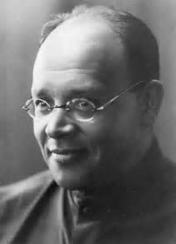 My first blog post of the new year is inspired by a passage written by the Russian Jewish author Isaac Babel, which I came across while doing research for a new book that I am starting this year. Babel was born in Odessa, in present-day Ukraine. He initially embraced the Russian Revolution, welcoming the new freedoms that Jews experienced under the Bolsheviks – the Pale of Settlement, where Jews were confined to living under the Tsars – was dissolved, quotas for schools, universities and professions were abolished and censorship ended. Like many other artists and writers, Babel became an ardent Bolshevik, but found himself increasingly out of favour during the rule of Joseph Stalin, who led the Soviet Union from 1924. Stalin promoted the bland Socialist Realist artistic style and the exciting, experimental art and literature of the immediate pre- and post-revolutionary years was brutally supressed. Unwilling to leave Mother Russia and follow his wife and daughter into exile in Paris, Babel was eventually shot in 1940, during Stalin’s purges, following a brief show trial. His name and work were erased in the Soviet Union until 1954, when he was rehabilitated during the so-called ‘thaw’ under Nikita Khrushchev. The passage below is a wonderful illustration of the contradictions that people – perhaps Jews especially – felt about the revolution. It comes from the short story Gedali, which forms part of Babel’s Red Cavalry collection. The Red Cavalry stories describe snapshots from Babel’s experience as a war correspondent during the 1920 campaign by the newly formed Soviet Red Army to invade Poland and spread socialist revolution to neighbouring countries. We sit down on some empty beer barrels. Gedali winds and unwinds his narrow beard. His top hat rocks above us like a little black tower. Warm air flows past us. The sky changes colour – tender blood pouring from an overturned bottle – and a gentle aroma of decay envelops me. “So let’s say we say ‘yes’ to the Revolution. But does that mean that we’re supposed to say ‘no’ to the Sabbath?” Gedali begins, enmeshing me in the silken cords of his smoky eyes. “Yes to the Revolution! Yes! But the Revolution keeps hiding from Gedali and sending gunfire ahead of itself.” “The sun cannot enter eyes that are squeezed shut,” I say to the old man, “but we shall rip open those closed eyes!” “The Pole has closed my eyes,” the old man whispers almost inaudibly. “The Pole, that evil dog! He grabs the Jew and rips out his beard, oy, the hound! But now they are beating him, the evil dog! This is marvellous, this is the Revolution! But then the same man who beat the Pole says to me, ‘Gedali, we are requisitioning your gramophone!’ ‘But gentlemen,’ I tell the Revolution, ‘I love music!’ And what does the Revolution answer me? ‘You don’t know what you love, Gedali! I am going to shoot you, and then you’ll know, and I cannot not shoot, because I am the Revolution!’” “The Revolution cannot not shoot, Gedali,” I tell the old man, “because it is the Revolution.” “But my dear Pan! The Pole did shoot, because he is the counterrevolution. And you shoot because you are the Revolution. But Revolution is happiness. And happiness does not like orphans in its house. A good man does good deeds. The Revolution is the good deed done by good men. But good men do not kill. Hence the Revolution is done by bad men. But the Poles are also bad men. Who is going to tell Gedali which is the Revolution and which the counterrevolution? I have studied the Talmud. I love the commentaries of Rashi and the books of Maimonides. And there are also other people in Zhitomir who understand. And so all of us learned men fall to the floor and shout with a single voice, ‘Woes unto us, where is the sweet Revolution?’” 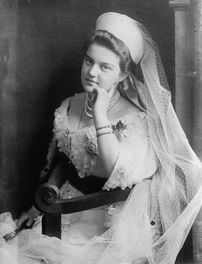 I have been perusing the fascinating work of Project1917, which documents day by day the thoughts and deeds of dozens of individuals who witnessed and participated in the events of the Russian Revolution. Here are some of the views expressed exactly 100 years ago, at the end of November 1917, about events in St Petersburg and Kiev, three weeks after the Bolshevik Revolution. Firstly, the Ukrainian-Russian writer Vladimir Korolenko, a life-long opponent of Tsarism, who initially welcomed the Revolution, but later became a critic of Bolshevik power: “Ukraine has been pronounced a republic. There is no centralised power in Russia. The country is falling apart. Maybe the healing process will begin from the provinces? However, it's not clear if the Rada has any authority.” Ukraine’s Central Rada had declared a Ukrainian People’s Republic opposed to Communist rule, and gained independence from Russia in 1918. But the healing process Korolenko spoke of took many years. Russia’s Civil War tore through Ukraine and the Russian ‘provinces’; peace was not restored until 1921. Korolenko spent the war years in Poltava, Ukraine, protesting against the atrocities committed by all sides in the conflict. The writer and philosopher Vasily Rozanov echoed Korolenko’s view: “Russia has disappeared in two days. In three days at most. Even the paper Novoe Vremya couldn’t be closed faster than Russia was closed. It’s astonishing that it fell to pieces all at once. The world has never experienced anything similar. There was no Tsardom left, no Church, no army, no working class. What is left, then? Almost nothing.” And I love this description of a trip to the theatre by the Grand Duchess Maria Pavlovna, a granddaughter of Tsar Alexander II and cousin of Tsar Nicolas II, which illustrates the immediate changes experienced by Russia’s elite after the Revolution. “One evening at the very beginning of the Bolshevist rule, my husband and I decided to go to the ballet. I had never before been in the Imperial Theatres otherwise than through a private entrance and in the imperial box, and I found it interesting to view the house from orchestra seats, as a private individual. We bought our tickets and went. At that time no one ever thought of dressing for the theatre so we went as we were. “We arrived when the spectacle had already begun. During the first interval we went into the foyer. The theatre was crowded by people from all walks of life. I remember that from the beginning I was shocked by the contrast between the well-known music and performance and the unusual, odd appearance of the house. “On our way back to our seats I looked up—it must have been for the first time—and saw the box on the right side of the stage which from time immemorial had been occupied by the imperial family. Framed by the heavy silk draperies, in the arm-chairs with the gilded backs, there now sat several sailors, their caps on their dishevelled heads and with them their ladies in woollen, coloured kerchiefs. “All things considered, there was nothing unusual in this sight, but nevertheless it affected me powerfully. My sight grew dim; I felt myself about to fall, and groped for the hand of my husband, who was walking beside me. Beyond that, I remember nothing. I came to myself after a thirty-minute fainting spell, the first and the last in my life, lying upon the hard oilcloth couch of the theatre's infirmary. The strange face of a doctor was bending over me and the room was filled with people who must have come to stare.” The Grand Duchess escaped from Russia, via Ukraine, in July 1918 and led a peripatetic life, settling in Paris, New York, Argentina and finally Germany. Many close members of her family who remained in Russia were murdered by the Bolsheviks. www.project1917.com 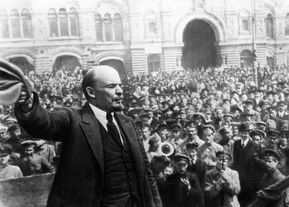 Today marks the centenary of Russia’s Bolshevik Revolution. As recent media broadcasts have repeatedly told us, Lenin’s men seized power in the autumn of 1917 and the world’s first communist state was born. But the reality was not so simple. Across parts of the Russian Empire the revolution unleashed a brutal civil war and it was several years before the Bolsheviks consolidated power. One such area was the territory of present-day Ukraine, my ancestral home. The fall of the Russian Provincial Government in Petrograd on 7 November 1917 (25 October according to the Russian calendar of the time) prompted a power struggle in Kiev that was to last for four years. The abdication of Tsar Nicholas II in March 1917 had led to the formation of Ukraine’s Central Rada, or parliament. In November, following the Bolshevik Revolution, it declared a Ukrainian People’s Republic opposed to Communist rule, and gained independence from Russia in 1918. In the years that followed, the government in Kiev changed hands so many times that it became difficult to keep track of who was supposed to be in charge. My family came from the village of Pavoloch, about 60 miles from Kiev. Here the October Revolution gave way to anarchy, as newly formed ‘banda’ – or armed factions – roamed the land. Some fought for Communism, others for Nationalism, Anarchism, Freedom or Holy Russia. The names of their leaders instilled fear: Petlyura, Makhno, Zeleny, Denikin. Later, in 1919 Pavoloch repeatedly became a sea of carnage as one banda after another passed through, stealing, raping, pillaging and killing. The White Army, under General Denikin, was the most ruthless of all. His professional soldiers were armed by western powers, including Britain, which wanted to see the Communists defeated. The Whites hated the Communists, but more than anything else they hated the Jews. They barged into Jewish homes, drew their swords and cut inhabitants down regardless of age or sex. Anyone who tried to escape was shot in the back as they fled. They threw grenades into cellars, blowing up entire families; poured petrol over synagogues and set them alight; raped thousands of women. One day five White Army soldiers burst into my family’s home. They searched the house for money, kicking down the door of the warehouse and smashing floorboards. One of the soldiers dealt my great-great grandfather a blow with his rifle butt and watched him crumple to the floor, then kicked him repeatedly in the stomach. They hustled the old man onto the table, pull his scuffed leather belt from around his waist and force his head into the noose they made with it. Then they hanged him from the meat hook on the kitchen ceiling. After the soldiers left, the frayed old belt snapped in two and my great-great grandfather landed with an almighty thump on the hard stone floor. He had survived! This is only one of around a dozen terrible incidents that affected my family during the Civil War. Here is Canadian scholar Orest Subtelny’s assessment of the time: “In 1919 total chaos engulfed Ukraine. Indeed, in the modern history of Europe no country experienced such complete anarchy, bitter civil strife, and total collapse of authority as did Ukraine at this time. Six different armies-– those of the Ukrainians, the Bolsheviks, the Whites, the Entente [French], the Poles and the anarchists – operated on its territory. Kiev changed hands five times in less than a year. Cities and regions were cut off from each other by the numerous fronts. Communications with the outside world broke down almost completely. The starving cities emptied as people moved into the countryside in their search for food.” The Bolsheviks finally secured power in the region in 1921 and the following year it became part of Soviet Ukraine. 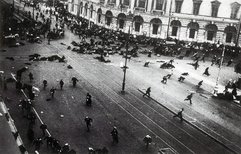 The two focal points of the Russian Revolution of 1917 centre on the February Revolution, when the Tsar was deposed, and the October Revolution, when the Bolsheviks seized power. But deep political changes and revolutionary fervour continued to bubble away between those key events. In early June, 100 years ago, Kiev’s central Rada, which had formed in March, proclaimed an independent Ukraine. The decision was supported by the first All-Russian Congress of Soviets, which had recently begun its session in Petrograd. The Congress voted in favour of Russia’s minority nations and peoples’ right to self-determination. It also resolved to negotiate with Russia’s allies for an immediate end to the war. Alexander Kerensky, who would later become prime minister, had just been named minister of war and launched a fresh offensive on the eastern front that brought devastating losses. Estimates put the number of deaths at 150,000, with some 250,000 wounded, prompting huge Bolshevik-led demonstrations in support of peace. Some 400,000 workers joined the protests in cities across Russia and Ukraine. As well as Moscow and Petrograd, Kiev and Kharkov saw some of the biggest peace marches. Factory workers staged massive strikes demanding an end to the war and food for the starving at home. The events of June 1917 lead the way for the so-called July Days, when hundreds of thousands of workers took to the streets of Petrograd demanding “All power to the Soviets!”. Armed clashes ensued and several hundred people were killed or wounded as troops attempted to break up the demonstrations (see photo). The protests were followed by mass arrests and violence. My grandmother Pearl was far away from Petrograd, in the small town of Pavolitch, around 60 miles from Kiev. Here’s what she said in A Forgotten Land about this period: “Prices continued to rise by the month, even by the week, until even bread became a luxury. How grateful we were for my grandfather’s grain supplies [Her grandfather was a grain dealer]. But with the incoming cartloads from the peasants dwindling, he was forced to raise his prices. The townsfolk were so desperate that they had no choice but to pay – or else go hungry. The bakers ground my grandfather’s wheat with chestnuts and potato peelings and baked bread that was so glutinous it stuck to the gums and was almost impossible to swallow. “Zayde’s [Grandfather’s] trips to Kiev became rare, but he recounted stories of the increasing unrest he witnessed each time he returned. People talked openly, fearlessly, in the streets about Russia withdrawing from the war and abandoning her allies; power to the workers; people’s soviets. Students handed out leaflets and waved red banners. What did it all mean? Would the war soon be over? How can workers take power? And what were the soviets? To a fifteen year old girl in a small country town, the reports from the city were all very mysterious.” The weeks following the tsar’s abdication were heady times, when the Provisional Government, made up of former members of Russia’s Duma, and the Petrograd Soviet vied for power. The Provisional Government set to work abolishing the death penalty, granting civil liberties and an amnesty for political prisoners – including those in exile – and ending religious and ethnic discrimination.
For Russia’s Jews, the Provisional Government promised almost unimaginable freedoms. For nearly 40 years, since the terrible pogroms of 1881, Jews had been emigrating in great numbers from the Russian Empire to America – the land of the free – seeing it as the fabled promised land. Now it appeared that the Promised Land was coming to Russia, there would be no longer be any need to emigrate. Grand Duke Alexander Mikhailovich, brother-in-law of the recently deposed Tsar Nicholas II, was in Kiev in March 1917, still part of the Russian Empire and at the heart of the Pale of Settlement, where Jews were forced to live in the Tsarist era. He described “triumphant demonstrations which have been organised to celebrate the country’s newly acquired freedom. The days are filled with endless meetings, and countless orators are promising peace, triumph and freedom.” Demonstrators marched through the streets carrying banners with the slogans: “We demand immediate peace!” “We demand the return of our husbands and sons from the front!” “Down with the government of capitalists!” “We need peace, not bloodshed!” “We demand an independent Ukraine!” For although the Provisional Government had granted significant reforms, it had not pulled Russia out of the war, which was bleeding the country dry and sapping morale. Nor did it address the thorny issues of land reform and the dreadful living standards, particularly among the peasantry. The Grand Duke was fearful of the revolution, and above all, that it could allow Jews to gain power. “All these freedoms are all very well, but meanwhile we, for some reason, are obliged to suffer more than any other citizens. It seems we are heading, rapidly and irrevocably, towards a republican regime. I fear that we are not ready for this, and Russia will fall apart. Already, Ukraine wishes to become an independent republic. And above all, the Yids will now gain a great deal of power, as we’ve already seen in Kiev, but if they continue in this way, a pogrom is inevitable, and they are terribly afraid of this.” In the coming months and years, the Grand Duke would be proved horribly correct. Quotes from Project1917.com 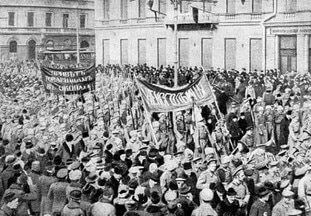 This week marks the centenary of the end of the Russian Empire. Tsar Nicholas II abdicated on 15 March 1917. He had attempted to reach the royal palace at Tsarskoe Selo, but revolutionaries had occupied the train stations around Petrograd, the imperial capital, and palace guards refused to support the imperial family. Realising he had lost almost all support in the country, the Tsar was forced to stand down. The Project 1917 website has some wonderful quotes from those involved. “All around is betrayal, cowardice and deceit!” decried Tsar Nicholas. Alexander Kerensky, justice minister in Russia’s Provisional Government said, “A free Russia has been born, and no one will succeed in prising this freedom from the people’s hands”. And here’s a fabulously unstatesmanlike quote from the Britain’s King George V: “I fear Alicky [ie, the Tsarina, Alexandra Feodorovna] is the cause of it all and Nicky [Tsar Nicholas] has been weak.” But not even a revolution could distract the composer Sergei Prokofiev from his work: “Thousands, tens of thousands of people are wandering the streets today with red bow-knots on their chests. This monotonous loitering has begun to annoy me. Right now I sit at home and work with great pleasure, I finished the 3rd sonnet and continued working on the violin concerto. Here’s a great picture portraying that Prokofiev might have seen from his window. The February Revolution centred on Petrograd, its name having been changed from St Petersburg at the start of the war in 1914 to make it sound more Russian. But its effects were felt across the empire. Here’s an extract from A Forgotten Land describing events in Kiev as the empire crumbled: “The mood in the streets changed overnight with the tsar’s abdication. Decades – even centuries – of fear were lifted and the population brimmed with excitement and optimism. Not just Jews, but Ukrainian factory workers, railway men and labourers all rejoiced in the new sense of hope. Jubilant processions were swiftly organised, concerts planned and enthusiastic bands of actors performed hastily rehearsed plays that had previously been banned.” And another on the effects on the Jewish community: “Under the tsars, the Jews had been stifled. We had experienced nothing but suffering at the hands of the authorities ever since our land had become part of the Russian Empire. […]Now, at last, we felt we could breathe. Kerensky would change everything. He was a socialist, a democrat and an amazing orator. He was an almost god-like figure and my family worshipped him. He roused the inhabitants of the Pale [the area where Jews were forced to live under tsarist rule] with is powerful speeches proclaiming that from now on, nobody in Russia would face discrimination on the grounds of religion or race. For the first time, Jews would be able to travel freely; to study and work in regions and professions from which we were previously barred; to settle wherever we wished, buy land of our own. There was a great feeling of hope, a new dawn.” Extracts from A Forgotten Land Historians and Ukraine’s Jewish community are protesting at a Ukrainian historian speaking at a conference on the Holocaust to be held in Paris this week.
Volodymyr Vyatrovych, director of Ukrainian National Memory Institute, has praised a Nazi collaborator by the name of Roman Shukhevych whose Ukrainian Insurgent Army troops reportedly killed thousands of Jews and ethnic Poles in the 1940s. Vyatrovych is giving a talk at the 9-11 March conference on the Holocaust in Ukraine, subtitled New Perspectives on the Evils of the 20th Century. Vyatrovych “is a falsifier and manipulator of historical facts who has not only blamed Jews for the Great Famine, but denies the anti-Semitic ideology and practices” of the Organization of Ukrainian Nationalists and the Ukrainian Insurgent Army, Eduard Dolinsky, director of the Ukrainian Jewish Committee, says. The two organisations fought during the first half of the 20th century against Soviet domination and briefly collaborated with Nazi occupation forces before turning against them. Today the group’s leaders, as well as other Holocaust-era nationalists are celebrated as heroes in Ukraine for their opposition to Soviet rule. The conference coincides with the 100th anniversary of Russia’s February Revolution, which paved the way for the start of Soviet rule later in 1917. For around a week from 8 March (23 February in the Julian calendar used in Russia at the time), mass demonstrations and armed clashes came to a head, forcing Tsar Nicholas II to resign, and heralding the end of Russia’s monarchy. Here’s how the February Revolution was viewed by Jews in Ukraine at the time, in the voice of my grandmother, Pearl Unikow Cooper: “It was as if a black cloud had lifted from above our heads. Alexander Kerensky and the Provisional Government filled the power void left by Tsar Nicholas and represented everything we had ever hoped for[…]. The Pale of Settlement [where Jews were confined to living] was dissolved at a single blow; censorship was abolished, and my grandfather began devouring newspapers and any other source of information that he could find, hungry for news that had not previously been considered fit for public consumption. “No more Tsar! No more restrictions on Jewish jobs and residence permits! Now we had the same rights as everybody else in the country. I didn’t understand the politics of it all, but I could feel the difference in my daily life. The mood of oppression that had settled since the beginning of the war was suddenly lifted. People smiled, chatted, laughed; they talked about their hopes and dreams, voiced aspirations that they had never dared to speak about before; some even danced in the street.” Extract from A Forgotten Land |
Keeping stories aliveThis blog aims to discuss historical events relating to the Jewish communities of Ukraine, and of Eastern Europe more widely. As a storyteller, I hope to keep alive stories of the past and remember those who told or experienced them. Like so many others, I am deeply troubled by the war in Ukraine and for the foreseeable future, most articles published here will focus on the war, with an emphasis on parallels with other tumultuous periods in Ukraine's tragic history. Archives
March 2024
Categories
All
|
 RSS Feed
RSS Feed
